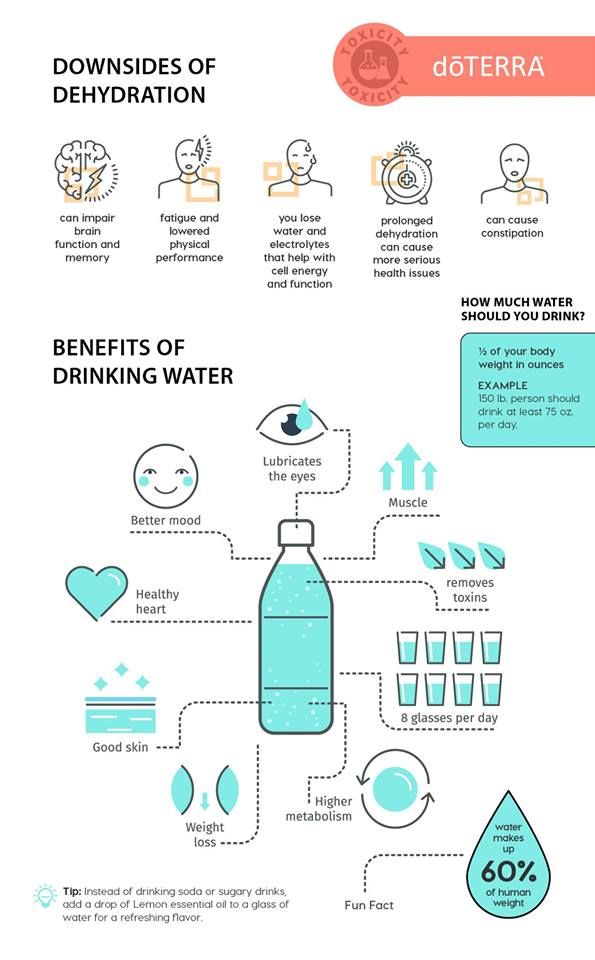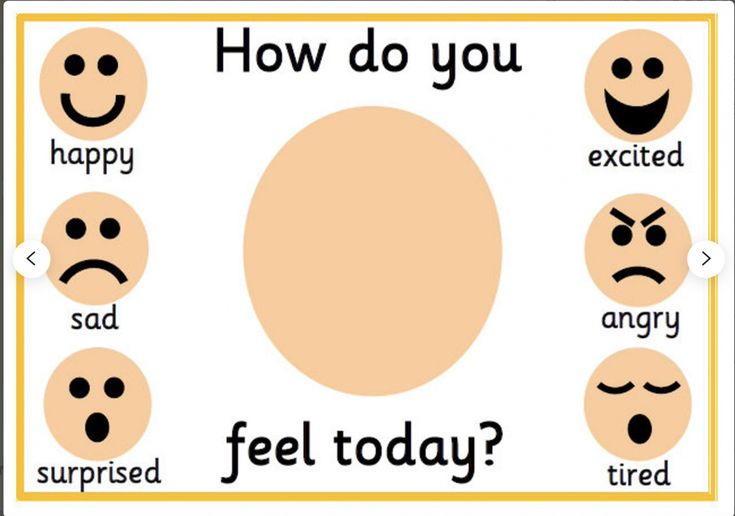Supplements for pregnant women
Vitamins and other nutrients during pregnancy
During pregnancy your baby gets all necessary nutrients from you. So you may need more during pregnancy than you did before pregnancy.
Taking prenatal vitamins and eating healthy foods can help give you all the nutrients you and your baby need during pregnancy.
Make sure your prenatal vitamin has folic acid, iron and calcium in it. Most have the right amount of each of these.
Talk to your provider to make sure you get enough vitamin D, DHA and iodine each day.
Don’t take any supplements without your provider’s OK.
What are prenatal vitamins?
Prenatal vitamins are multivitamins for pregnant women or women who are trying to get pregnant. Compared to a regular multivitamin, they have more of some nutrients that you need during pregnancy. Your health care provider may prescribe a prenatal vitamin for you, or you can buy them over the counter without a prescription. Take a prenatal vitamin every day during pregnancy. If you’re planning to get pregnant, start taking prenatal vitamins before you get pregnant.
Your body uses vitamins, minerals and other nutrients in food to strong and healthy. During pregnancy, your growing baby gets all necessary nutrients from you. So you may need more during pregnancy than you did before. If you’re pregnant with multiples (twins, triplets or more), you may need more nutrients than if you’re pregnant with one baby. Your prenatal vitamin contains the right amount of nutrients you need during pregnancy.
If you’re a vegetarian, have food allergies or can’t eat certain foods, your provider may want you to take a supplement to help you get more of certain nutrients. A supplement is a product you take to make up for certain nutrients that you don’t get enough of in foods you eat. For example, your provider may recommend that you take a vitamin supplement to help you get more vitamin D, iron or calcium.
Which nutrients are most important during pregnancy?
All nutrients are important, but these six play a key role in your baby’s growth and development during pregnancy:
- Folic acid
- Iron
- Calcium
- Vitamin D
- DHA
- Iodine
What is folic acid?
Folic acid is a B vitamin that every cell in your body needs for healthy growth and development.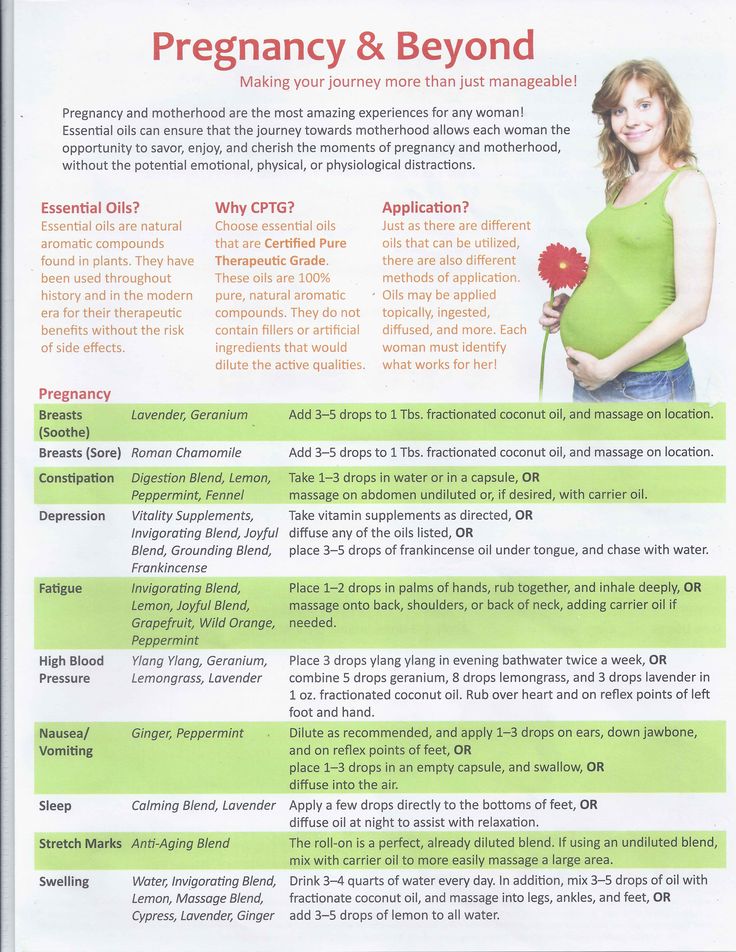 Taking folic acid before and during early pregnancy can help prevent birth defects of the brain and spine called neural tube defects (also called NTDs). Some studies show that taking folic acid may help prevent heart defects and birth defects in your baby’s mouth (called cleft lip and palate).
Taking folic acid before and during early pregnancy can help prevent birth defects of the brain and spine called neural tube defects (also called NTDs). Some studies show that taking folic acid may help prevent heart defects and birth defects in your baby’s mouth (called cleft lip and palate).
- Before pregnancy take a vitamin supplement with 400 mcg of folic acid every day.
- Take a vitamin supplement with 400 mcg of folic acid each day, even if you’re not trying to get pregnant.
- During pregnancy, take a prenatal vitamin each day that has 600 mcg of folic acid in it.
Check the product label to see how much folic acid is in it.
If you’re at high risk for having a baby with an NTD, talk to your provider about how you can safely take 4,000 mcg of folic acid each day to help prevent an NTD. Start taking 4,000 mcg at least 3 months before you get pregnant and through the first 12 weeks of pregnancy. You’re at high risk if:
- You’ve had a pregnancy with an NTD in the past.
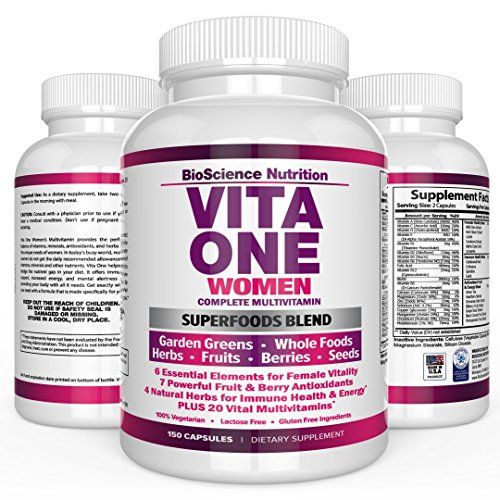
- You or your partner has an NTD.
- Your partner has a child with an NTD.
Don’t take several multivitamins or prenatal vitamins. You can get too much of other nutrients, which may be harmful to your health. Your provider can help you figure out the best and safest way for you to get the right amount of folic acid.
You can also get folic acid from food. Citrus fruits, green leafy vegetables and beans are all excellent sources of folic acid. Some foods are also enriched with folic acid, such as cereals, bread, rice and pasta.
What is iron?
Iron is a mineral. Your body uses iron to make hemoglobin, a protein that helps carry oxygen from your lungs to the rest of your body. You need twice as much iron during pregnancy than you did before pregnancy. Your body needs this iron to make more blood so it can carry oxygen to your baby. Your baby needs iron to make his own blood.
During pregnancy you need 27 milligrams of iron each day.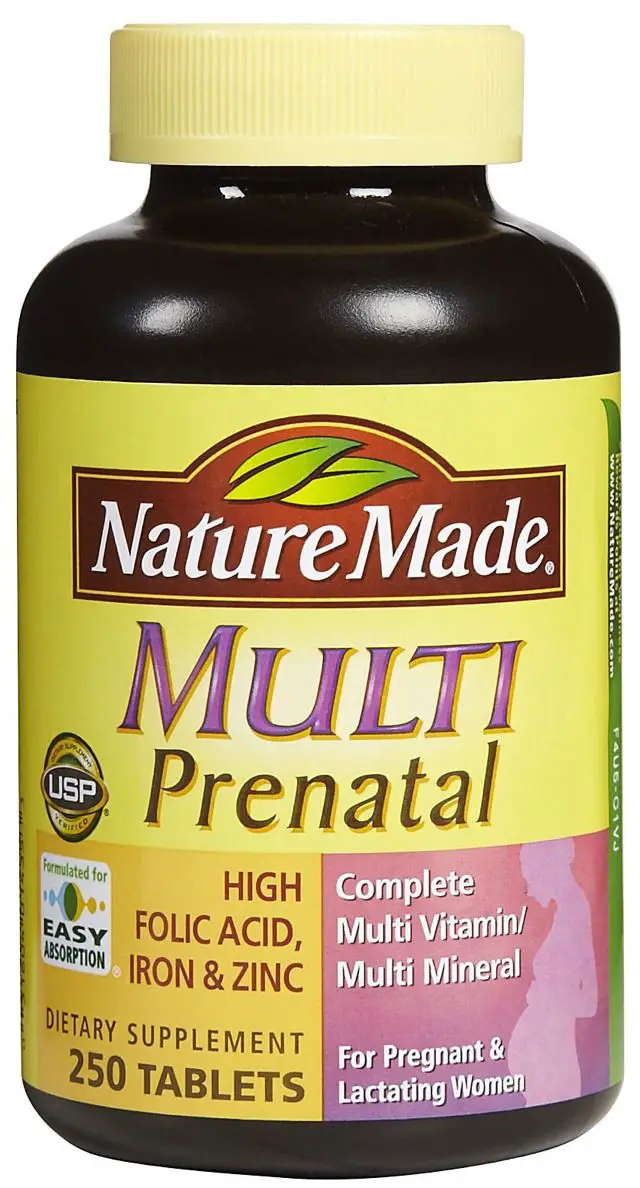 Most prenatal vitamins have this amount. You also can get iron from food. Good sources of iron include:
Most prenatal vitamins have this amount. You also can get iron from food. Good sources of iron include:
- Lean meat, poultry and seafood
- Cereal, bread and pasta that has iron added to it (check the package label)
- Leafy green vegetables
- Beans, nuts, raisins and dried fruit
Foods containing vitamin C can increase the amount of iron your body absorbs. It's a good idea to eat foods like orange juice, tomatoes, strawberries and grapefruit every day.
Calcium (in dairy products like milk) and coffee, tea, egg yolks, fiber and soybeans can block your body from absorbing iron. Try to avoid these when eating iron-rich foods.
If you don’t get enough iron during pregnancy, you may be more likely to experience:
- Infections.
- Anemia. This means you have too little iron in your blood.
- Fatigue. This means you feel really tired or exhausted.
- Premature birth. This means your baby is born too soon, before 37 weeks of pregnancy.
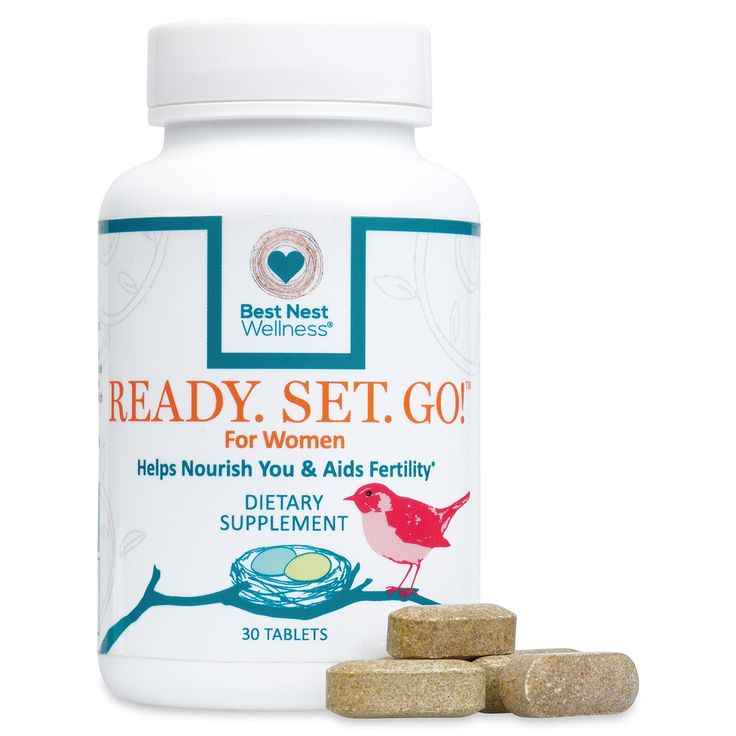
- Low birthweight. This means your baby is born weighing less than 5 pounds, 8 ounces.
What is calcium?
Calcium is a mineral that helps your baby’s bones, teeth, heart, muscles and nerves develop. During pregnancy, you need 1,000 milligrams of calcium each day. You can get this amount by taking your prenatal vitamin and eating food that has a lot of calcium in it. Good sources of calcium include:
- Milk, cheese and yogurt
- Broccoli and kale
- Orange juice that has calcium added to it (check the package label)
If you don’t get enough calcium during pregnancy, your body takes it from your bones and gives it to your baby. This can cause health conditions, such as osteoporosis, later in life. Osteoporosis causes your bones become thin and break easily.
What is vitamin D?
Vitamin D helps your body absorb calcium. It also helps your body’s nerves, muscles and immune system work. Your immune system protects your body from infection.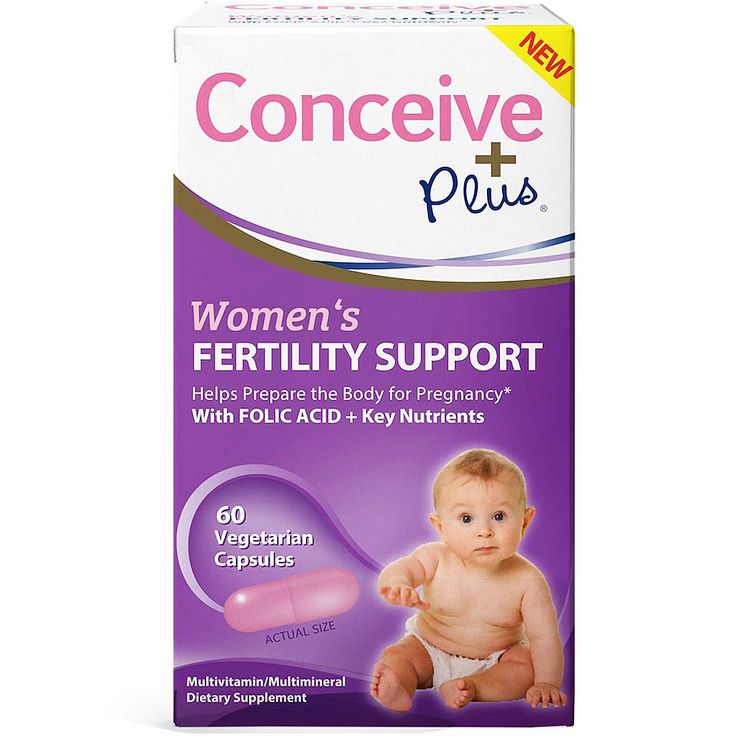 Vitamin D helps your baby’s bones and teeth grow.
Vitamin D helps your baby’s bones and teeth grow.
During pregnancy, you need 600 IU (international units) of vitamin D each day. You can get this amount from food or your prenatal vitamin. Good sources of vitamin D include:
- Fatty fish, like salmon
- Milk and cereal that has vitamin D added to it (check the package label)
What is DHA?
Docosahexaenoic acid (DHA) is a kind of fat (called omega-3 fatty acid) that helps with growth and development. During pregnancy, you need DHA to help your baby’s brain and eyes develop. Not all prenatal vitamins contain DHA, so ask your provider if you need to take a DHA supplement.
During pregnancy, it is recommended that women eat 8 to 12 ounces of seafood low in mercury each week. Good sources of DHA include:
- Herring, salmon, trout, anchovies, halibut, catfish, shrimp and tilapia
- Orange juice, milk and eggs that have DHA added to them (check the package label)
What is iodine?
Iodine is a mineral your body needs to make thyroid hormones, which help your body use and store energy from food.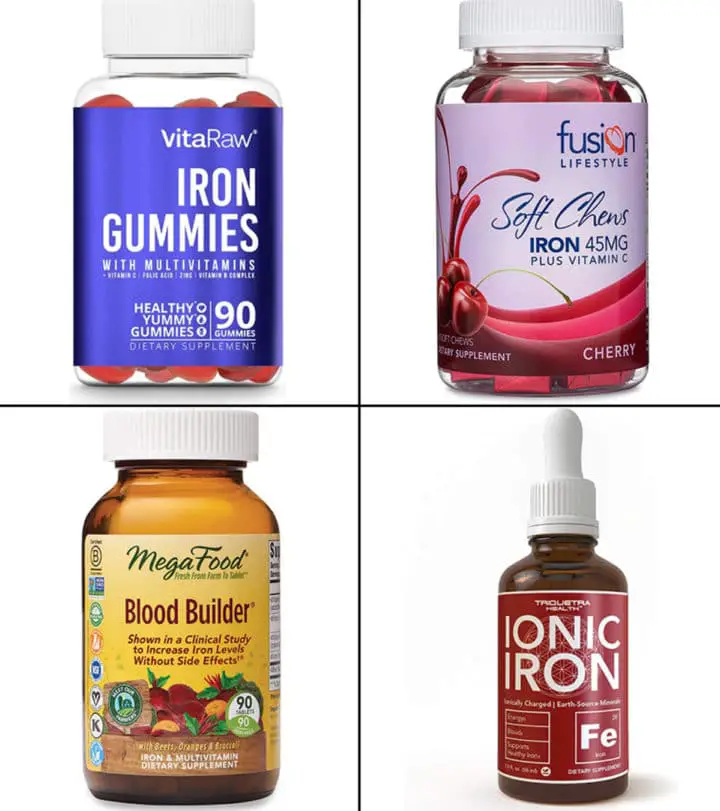 You need iodine during pregnancy to help your baby’s nervous system develop. The nervous system (brain, spinal cord and nerves) helps your baby move, think and feel.
You need iodine during pregnancy to help your baby’s nervous system develop. The nervous system (brain, spinal cord and nerves) helps your baby move, think and feel.
During pregnancy, you need 220 micrograms of iodine every day. Not all prenatal vitamins contain iodine, so make sure you eat foods that have iodine in them. Ask your provider if you need to take an iodine supplement.
Good sources of iodine include:
- Fish
- Milk, cheese and yogurt
- Enriched or fortified cereal and bread (check the package label)
- Iodized salt (salt with iodine added to it; check the package label)
Last reviewed September, 2020
Vitamins, minerals and supplements in pregnancy
Eating a healthy, varied diet in pregnancy will help you get most of the vitamins and minerals you need.
But when you're pregnant, or there's a chance you might get pregnant, it’s important to also take a folic acid supplement.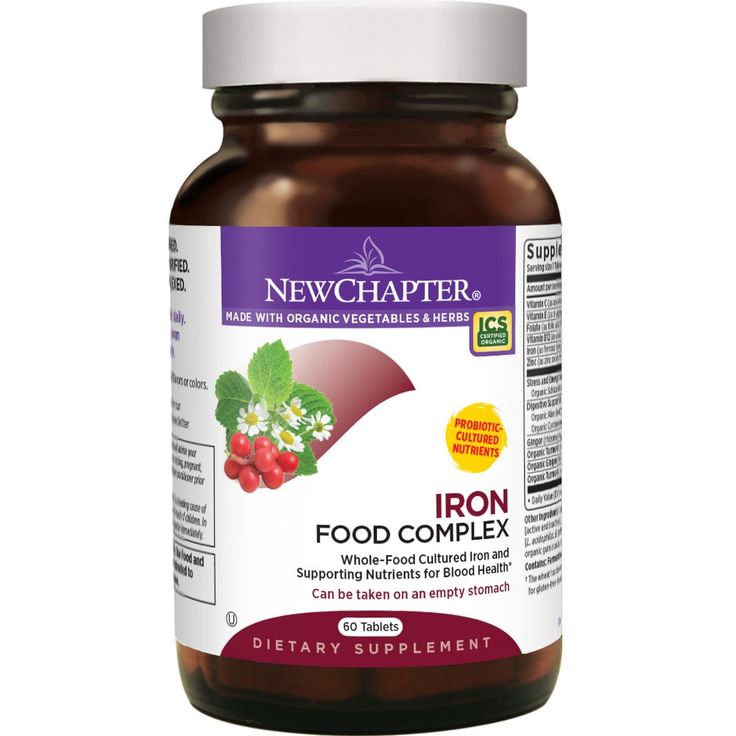
It's recommended that you take:
- 400 micrograms of folic acid every day – from before you're pregnant until you're 12 weeks pregnant
This is to reduce the risk of problems in the baby's development in the early weeks of pregnancy.
It is also recommended that you take a daily vitamin D supplement.
Do not take cod liver oil or any supplements containing vitamin A (retinol) when you're pregnant. Too much vitamin A could harm your baby. Always check the label.
You also need to know which foods to avoid in pregnancy.
Where to get pregnancy supplements
You can get supplements from pharmacies and supermarkets, or a GP may be able to prescribe them for you.
If you want to get your folic acid from a multivitamin tablet, make sure the tablet does not contain vitamin A (or retinol).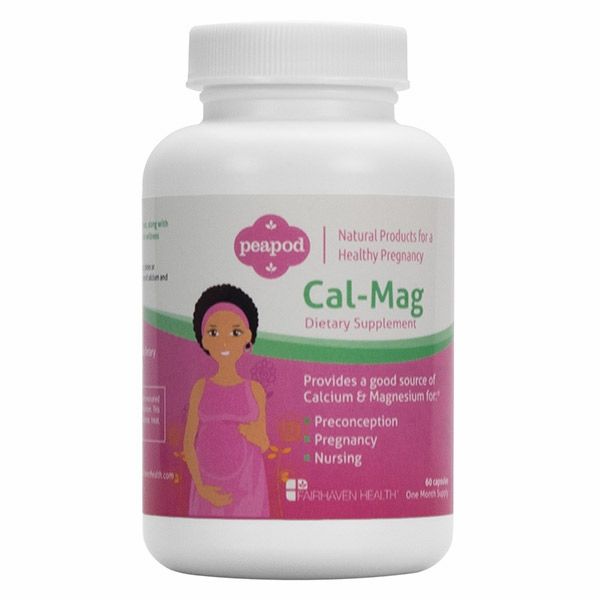
You may be able to get free vitamins if you qualify for the Healthy Start scheme.
Find out more about the Healthy Start scheme.
Folic acid before and during pregnancy
It’s important to take a 400 micrograms folic acid tablet every day before you're pregnant and until you're 12 weeks pregnant.
Folic acid can help prevent birth defects known as neural tube defects, including spina bifida.
If you did not take folic acid before you conceived, you should start as soon as you find out you're pregnant.
Try to eat green leafy vegetables which contain folate (the natural form of folic acid) and breakfast cereals and fat spreads with folic acid added to them.
It's difficult to get the amount of folate recommended for a healthy pregnancy from food alone, which is why it's important to take a folic acid supplement.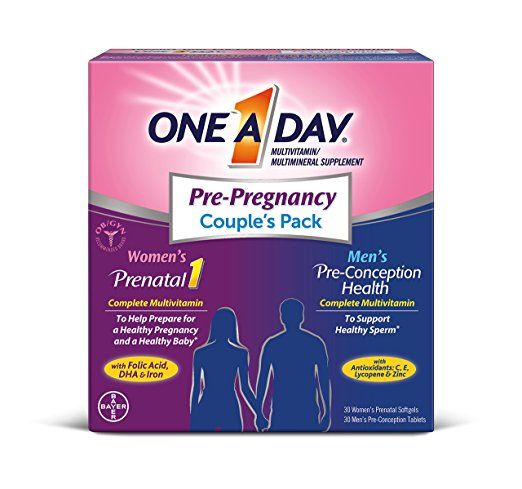
Higher-dose folic acid
If you have a higher chance of your pregnancy being affected by neural tube defects, you will be advised to take a higher dose of folic acid (5 milligrams). You will be advised to take this each day until you’re 12 weeks pregnant.
You may have a higher chance if:
- you or the baby's biological father have a neural tube defect
- you or the baby's biological father have a family history of neural tube defects
- you have had a previous pregnancy affected by a neural tube defect
- you have diabetes
- you take anti-epilepsy medicine
- you take anti-retroviral medicine for HIV
If any of this applies to you, talk to a GP. They can prescribe a higher dose of folic acid.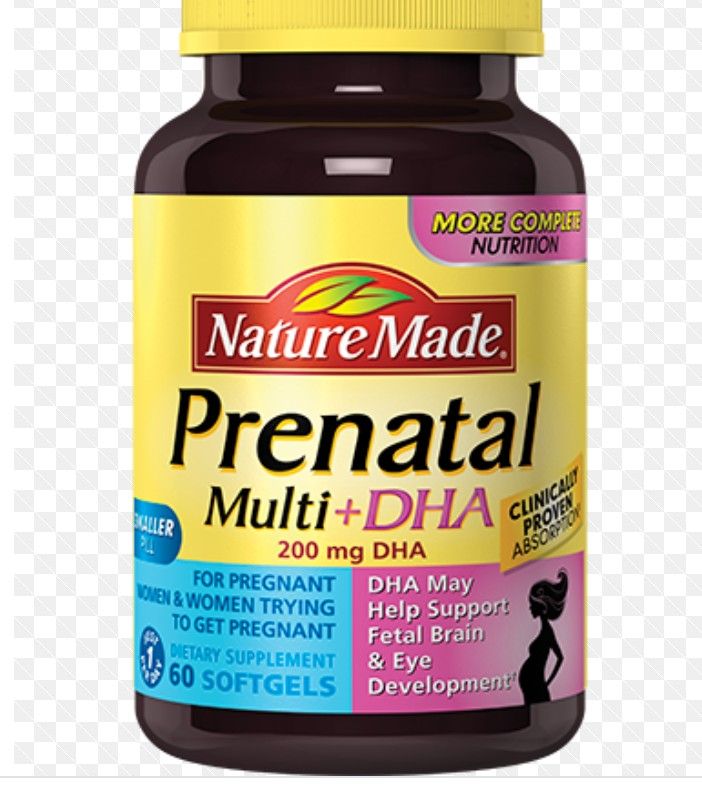
A GP or midwife may also recommend additional screening tests during your pregnancy.
Find out about epilepsy and pregnancy.
Vitamin D in pregnancy
You need 10 micrograms of vitamin D each day and should consider taking a supplement containing this amount between September and March.
Vitamin D regulates the amount of calcium and phosphate in the body, which are needed to keep bones, teeth and muscles healthy. Our bodies make vitamin D when our skin is exposed to summer sunlight (from late March/early April to the end of September).
It's not known exactly how much time is needed in the sun to make enough vitamin D to meet the body's needs, but if you're in the sun take care to cover up or protect your skin with sunscreen before you start to turn red or burn.
Vitamin D is also in some foods, including:
- oily fish (such as salmon, mackerel, herring and sardines)
- eggs
- red meat
Vitamin D is added to some breakfast cereals, fat spreads and non-dairy milk alternatives.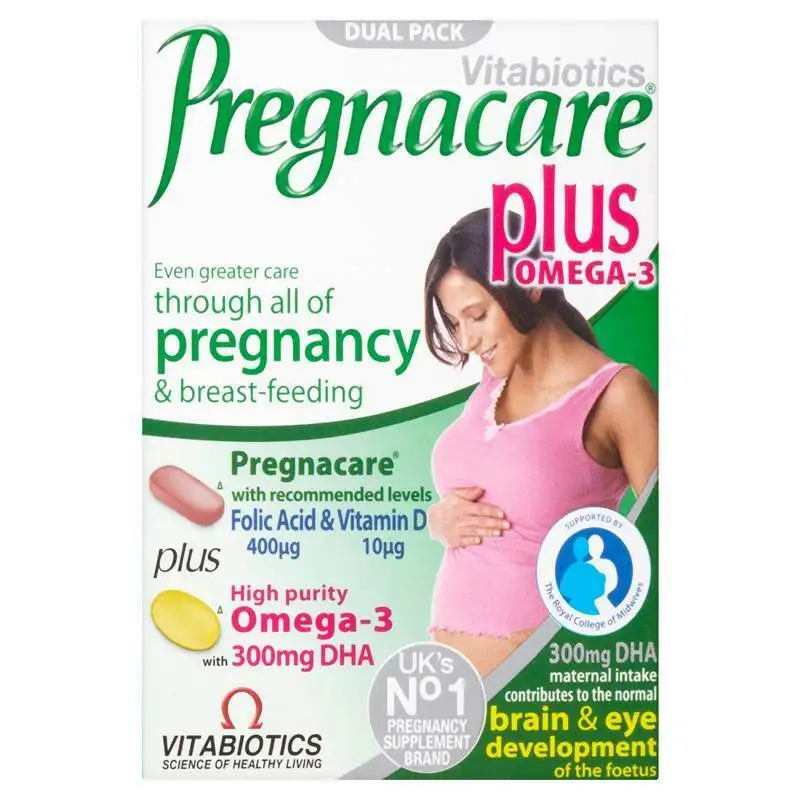 The amounts added to these products can vary and might only be small.
The amounts added to these products can vary and might only be small.
Because vitamin D is only found in a small number of foods, whether naturally or added, it is difficult to get enough from foods alone.
Do not take more than 100 micrograms (4,000 IU) of vitamin D a day as it could be harmful.
You can get vitamin supplements containing vitamin D free of charge if you're pregnant or breastfeeding and qualify for the Healthy Start scheme.
Information:
There have been some reports about vitamin D reducing the risk of coronavirus (COVID-19). But there is currently not enough evidence to support taking vitamin D solely to prevent or treat COVID-19.
If you have dark skin or cover your skin a lot
You may be at particular risk of not having enough vitamin D if:
- you have dark skin (for example, if you're of African, African Caribbean or south Asian origin)
- you cover your skin when outside or spend lots of time indoors
You may need to consider taking a daily supplement of vitamin D all year.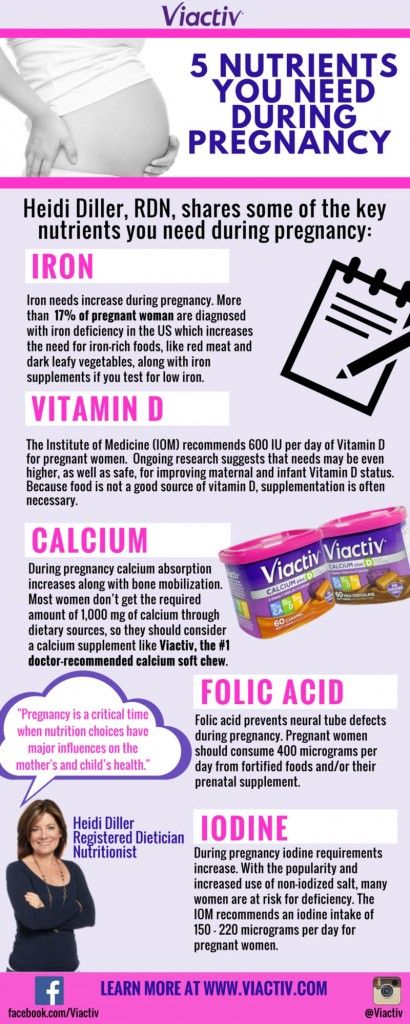 Talk to a midwife or doctor for advice.
Talk to a midwife or doctor for advice.
Iron in pregnancy
If you do not have enough iron, you'll probably get very tired and may suffer from anaemia.
Lean meat, green leafy vegetables, dried fruit, and nuts contain iron.
If you'd like to eat peanuts or foods that contain peanuts (such as peanut butter) during pregnancy, you can do so as part of a healthy, balanced diet unless you're allergic to them or your health professional advises you not to.
Many breakfast cereals have iron added to them. If the iron level in your blood becomes low, a GP or midwife will advise you to take iron supplements.
Vitamin C in pregnancy
Vitamin C protects cells and helps keep them healthy.
It's found in a wide variety of fruit and vegetables, and a balanced diet can provide all the vitamin C you need.
Good sources include:
- oranges and orange juice
- red and green peppers
- strawberries
- blackcurrants
- broccoli
- brussels sprouts
- potatoes
Calcium in pregnancy
Calcium is vital for making your baby's bones and teeth.
Sources of calcium include:
- milk, cheese and yoghurt
- green leafy vegetables, such as rocket, watercress or curly kale
- tofu
- soya drinks with added calcium
- bread and any foods made with fortified flour
- fish where you eat the bones, such as sardines and pilchards
Vegetarian, vegan and special diets in pregnancy
A varied and balanced vegetarian diet should provide enough nutrients for you and your baby during pregnancy.
But you might find it more difficult to get enough iron and vitamin B12.
Talk to a midwife or doctor about how to make sure you're getting enough of these important nutrients.
If you're vegan or you follow a restricted diet because of a food intolerance (for example, a gluten-free diet for coeliac disease) or for religious reasons, talk to a midwife or GP.
Ask to be referred to a dietitian for advice on how to make sure you're getting all the nutrients you need for you and your baby.
Find out more about healthy eating if you're pregnant and vegetarian or vegan.
Healthy Start vitamins
The Healthy Start scheme may be able to help you buy food and milk if you're pregnant or have a child under 4 years old and receive certain benefits, or you’re pregnant and under 18.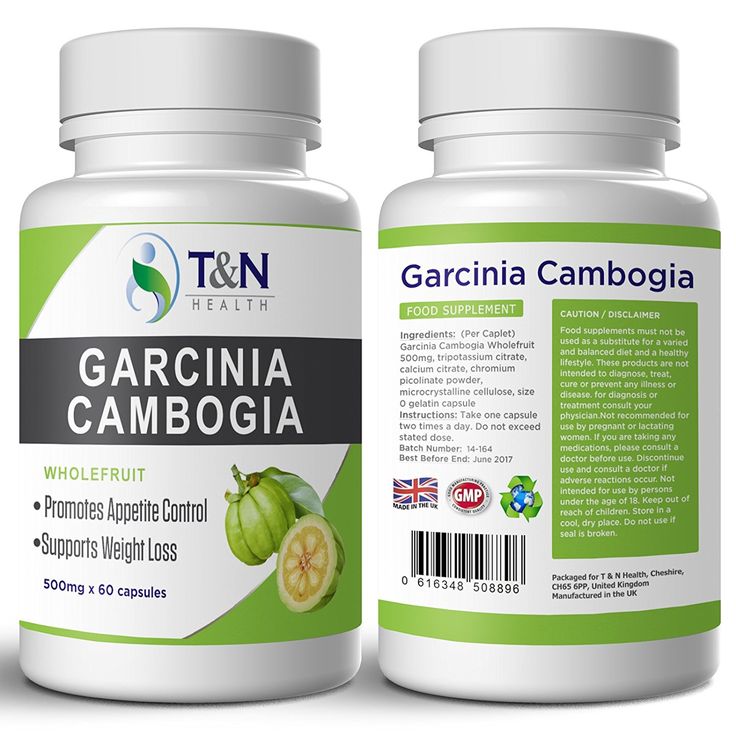
If you’re eligible, you’ll be sent a Healthy Start card which you can use to buy certain types of milk, infant formula, fruit and vegetables.
You can also use your card to get free vitamins.
If you're not eligible for the Healthy Start scheme, some NHS organisations still offer the vitamins for free, or sell them. Ask a midwife about what's available in your area.
More information:
- Read more information about Healthy Start, or apply for a Healthy Start card, on the Healthy Start scheme website
- Read more about getting vitamins on the Healthy Start scheme website
Video: Should I take supplements during my pregnancy?
In this video, a midwife explains which supplements you can take during pregnancy.
Media last reviewed: 2 February 2023
Media review due: 2 February 2026
Get Start4Life pregnancy and baby emails
Sign up for Start4Life's weekly emails for expert advice, videos and tips on pregnancy, birth and beyond.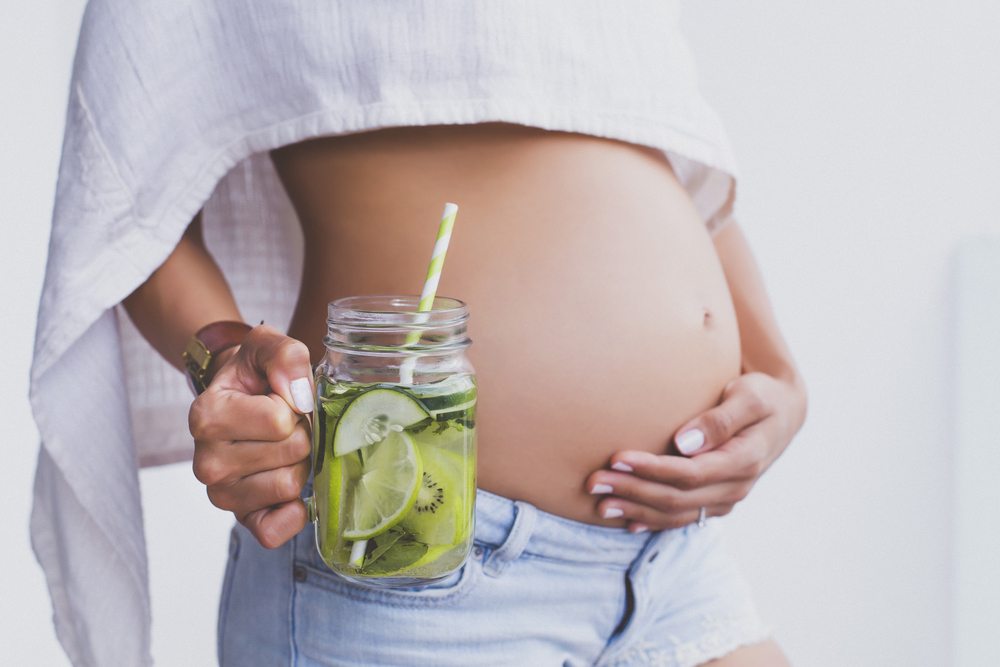
What nutritional supplements are useful for pregnant women to take
From the moment of conception, a woman is no longer alone, and the amount of calories consumed, the volume of vitamins and minerals is not enough to provide them for an adult and a second developing organism. Of course, you do not need to eat for two and enter the sick leave, because you can easily continue the normal rhythm of life. But during pregnancy, your body already needs additional nourishment in order to pass on all the most valuable and important to the unborn baby.
Need more nutrients
The period of gestation causes a woman's need for macronutrients to increase. We are talking about increased consumption of proteins, carbohydrates and fats.
With a normal rhythm of life, the protein norm is 0.8 grams per 1 kilogram of body weight, and during pregnancy this figure increases to 1.1 grams.
The norm of substances enriched with vitamins, minerals and microelements increases significantly.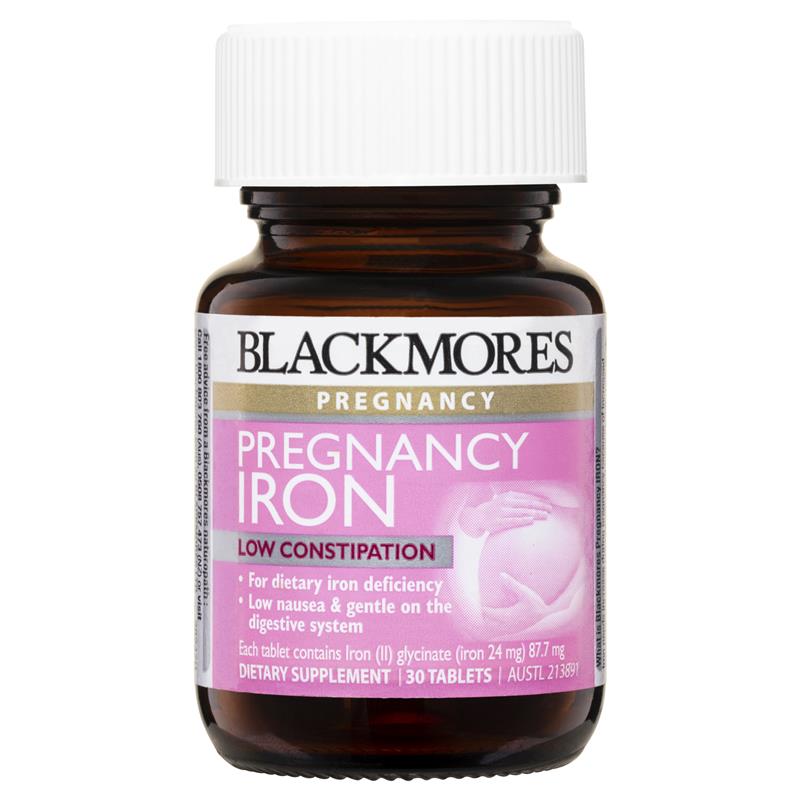 These components are important for maintaining maternal growth and proper fetal development at every stage of pregnancy, thereby ensuring the proper functioning of all systems, cell signaling.
These components are important for maintaining maternal growth and proper fetal development at every stage of pregnancy, thereby ensuring the proper functioning of all systems, cell signaling.
With a correct and varied diet, you can fully meet your needs for all the necessary micronutrients.
Among the main reasons why women take nutritional supplements and vitamin complexes during pregnancy are the following:
- nutrient deficiency - if a blood test reveals a lack of specific minerals or vitamins, then special supplements are prescribed. This is necessary, especially if there is a deficiency of folate, as it can cause birth defects for the baby born;
- Hyperemesis gravidarum - a complication during pregnancy, accompanied by vomiting and nausea. Often results in weight loss and nutritional deficiencies;
- limited nutrition and strict diet - if you are a vegan, have an allergy or intolerance to certain foods, follow a strict diet, then the body needs to be saturated with minerals and vitamins in order to protect itself from unforeseen deviations and health disorders in the future;
- smoking - despite the fact that this bad habit is not combined with pregnancy, there are many women who allow themselves to smoke.
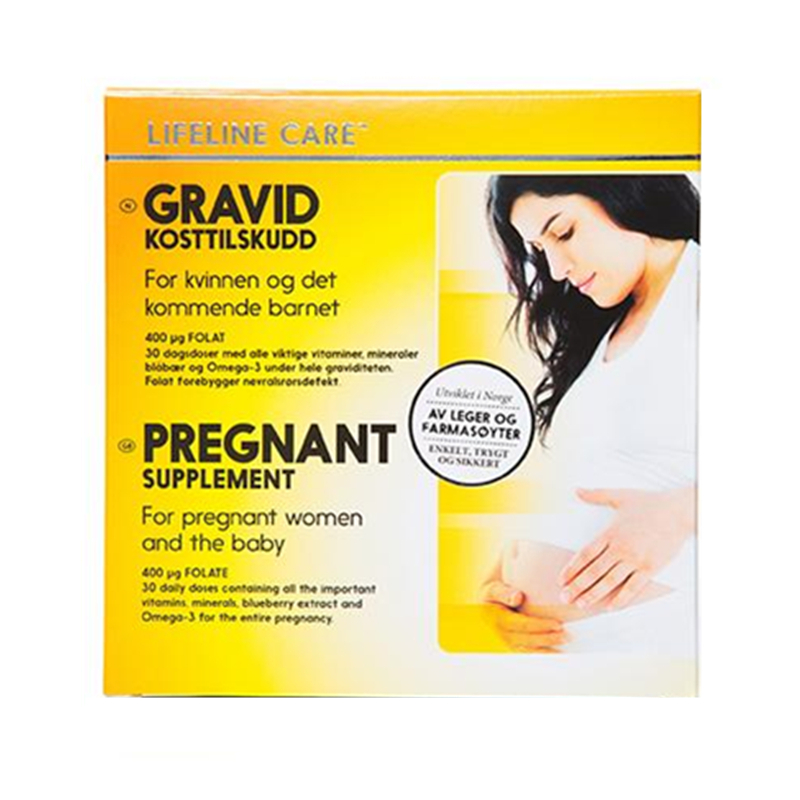 In this case, you need to saturate the body with vitamin C and folate;
In this case, you need to saturate the body with vitamin C and folate; - multiple pregnancy - if you are carrying more than one baby, but several, then the body's need for micronutrients increases already several times. Mothers need to provide good nutrition so that future children are healthy;
- gene mutations, in particular MTHFR - this gene converts folate into the form that is used by the body. If a pregnant woman has such a mutation, care should be taken to supplement her intake of folate to protect herself from the risks of complications;
- poor diet, malnutrition - when malnourished and consuming foods poor in vitamins, the body experiences a lack of them, and then it is necessary to compensate for the needs through nutritional supplements.
Representatives of the American Congress of Obstetricians and Gynecologists, as well as experts who share their views and positions, advise all pregnant women to take vitamins, especially folic acid.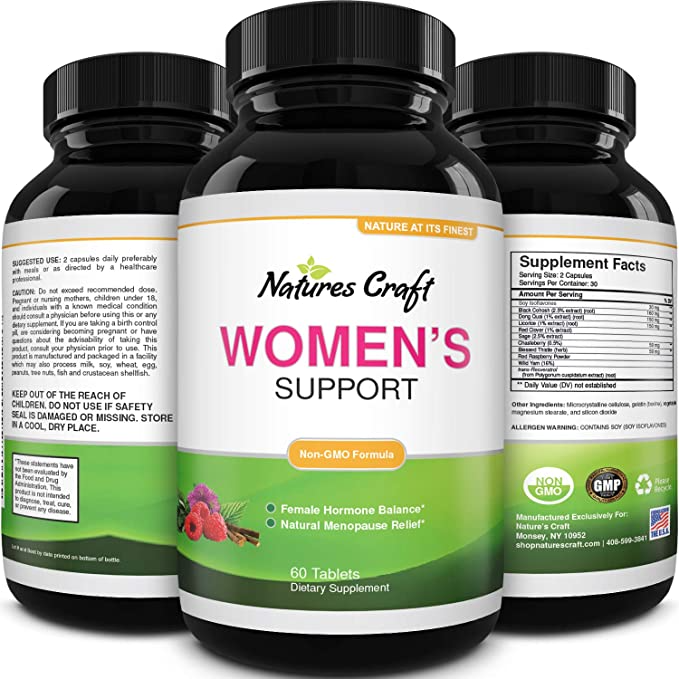 You also need to review your diet and adjust the foods you eat to prevent birth defects in a child. One of the most common pathologies is spina bifida.
You also need to review your diet and adjust the foods you eat to prevent birth defects in a child. One of the most common pathologies is spina bifida.
All of the above reasons encourage expectant mothers to take vitamin and mineral supplements.
Herbal Pregnancy Supplements
Natural herbal supplements are becoming increasingly popular. They can be combined with minerals.
A study found that 15.4 percent of pregnant women in the United States take herbal supplements. However, 25 percent of this population never told their gynecologist that they were taking drugs.
Only some types of herbal products are safe and harmless to the fetus, and there are many substances that are fraught with danger and harm to the mother's body.
There are herbs that are effective for complications during pregnancy, such as relieving nausea, relieving indigestion, but most other herbs pose a threat to the mother's body and to the health of the fetus.
Research aimed at studying herbal supplements and their effect on the pregnant body, so many aspects remain unexplored, which does not allow us to confidently declare the benefits of herbal preparations for pregnant women.
The Safest Supplements for Women During Pregnancy
Like medicines and medicines, all micronutrients and vitamin or herbal supplements must be reviewed and approved by your gynecologist to prescribe the correct dosage and determine if it is appropriate and appropriate to take them in a particular situation.
If you're buying your own vitamin supplements, be sure to go for a well-known brand that submits their products to testing and independent labs. In particular, there must be a quality mark from the United States Pharmacopoeia Convention (USP). Thus, it can be understood that the product meets the declared quality and safety standards for use.
This ensures that the vitamins meet quality standards and are generally safe to consume.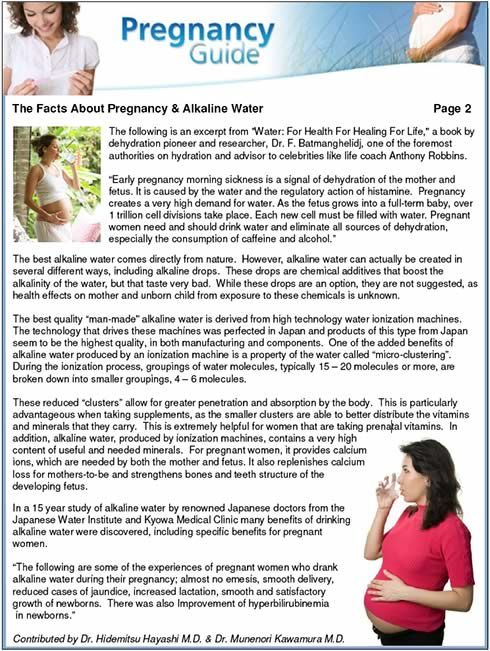
Prenatal Vitamins
These substances are multivitamins designed specifically to meet the micronutrient needs of the female body to ensure a smooth and smooth pregnancy.
They can be taken during pregnancy planning, during fetal development and further after childbirth during lactation.
Observational studies have shown that taking vitamins helps mothers-to-be avoid the risk of preterm birth and preeclampsia. The latter is a very dangerous complication, accompanied by an increase in pressure and a splash of protein into the urine.
Despite the fact that prenatal vitamins cannot be a full-fledged replacement for proper and healthy food, they nevertheless prevent the lack of important trace elements and saturate the body with all the substances that are important during pregnancy.
Prenatal vitamins contain many minerals and vitamins that are difficult for pregnant women to do without, but there is no need for additional preparations, unless they are prescribed by a doctor.
Prenatal vitamins are available over the counter but are prescribed by your gynecologist.
Folate
Folate is a substance from the B vitamin group that is involved in DNA synthesis, helps produce red blood cells, and promotes the development and growth of the fetus.
Folic acid is an artificial form of folate found in many dietary supplements. In the body, it is converted into an active form called L-methylfolate and has a beneficial effect on the body.
The recommended amount of folic acid for pregnant women is 600 micrograms per day. The trace element reduces the risk of damage to the neural tube and prevents congenital anomalies, for example, protects against heart defects and cleft palate.
Scientists conducted five randomized trials on a group of 6105 women. Folic acid was required to reduce the risk of neural tube defects. At the end of the experiment, the researchers found no side effects.
The modern diet, even the healthiest, does not meet the daily requirement for folate. But with the usual rhythm of life, this is not felt and does not affect health in any way, but during pregnancy, when a woman keeps a new life in herself, care must be taken to ensure that the body receives the entire dose of the trace element.
But with the usual rhythm of life, this is not felt and does not affect health in any way, but during pregnancy, when a woman keeps a new life in herself, care must be taken to ensure that the body receives the entire dose of the trace element.
Experts at the various Centers for Disease Control and Prevention recommend that all pregnant and expecting women take at least 400 micrograms of folate each day.
This is due to the fact that many conceptions are not planned, and birth defects of the fetus can appear very early, even before the woman knows about her condition.
If a woman has an MTHFR mutation, it is best to choose supplements with the active form of L-methylfolate, as this is the best absorption of micronutrients.
Iron
Due to the fact that the volume of blood in women during periods of gestation increases by 50 percent, the body's need for such an element as iron increases. This component is used for the development of the fetus, as well as for transporting oxygen to the internal organs.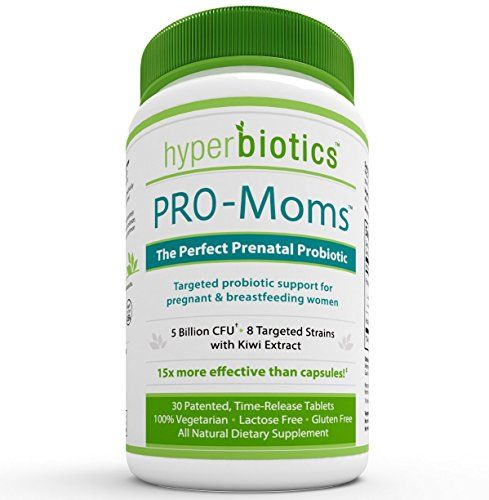
Today, approximately 18 percent of women in the United States are iron deficient, and another 8 percent are anemic. The latter disease most often occurs due to preterm birth, depression after the birth of a child and the occurrence of this disease in the fetus.
The daily rate of iron in the body, which is 27 mg, can be replenished by using specialized vitamin complexes for pregnant women. However, it should be borne in mind that during pregnancy this rate increases, due to which a larger volume may be prescribed by a doctor.
To exclude the possibility of side effects, women during the period of gestation, if they do not have a deficiency of this trace element, are not recommended to exceed the daily intake. If this recommendation is not followed, a gag reflex, a violation of the stool and an increase in hemoglobin levels may occur. Vitamin D
Vitamin D
To normalize the immune system, strengthen bones and restore cell division, it is recommended to consume vitamin D.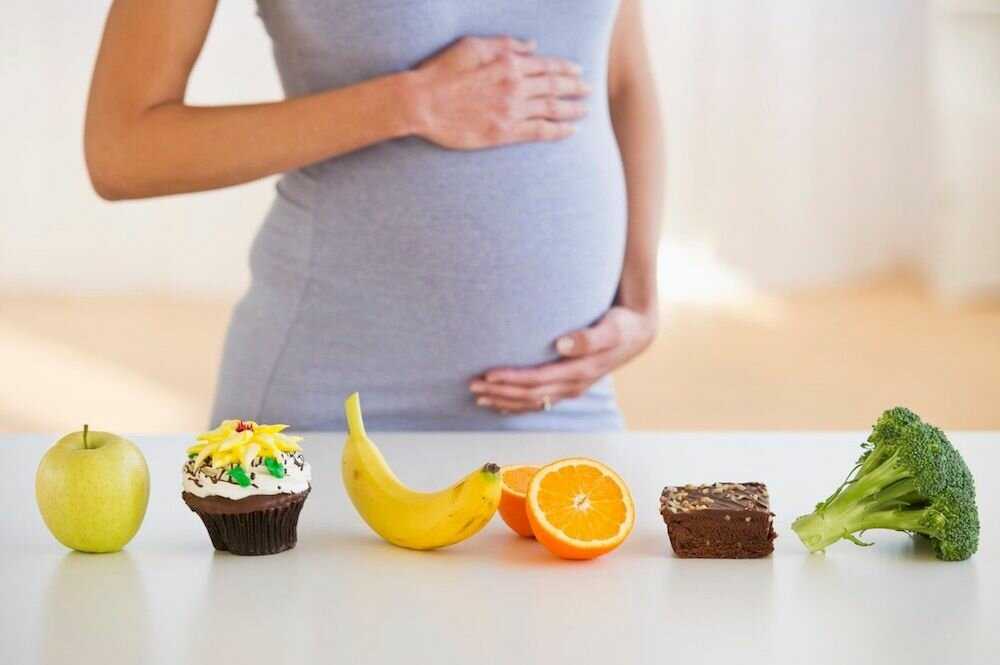 An acute shortage of this element in pregnant women can lead to the need for a caesarean section, to premature birth or to the development of gestational diabetes.
An acute shortage of this element in pregnant women can lead to the need for a caesarean section, to premature birth or to the development of gestational diabetes.
Women during pregnancy are recommended to consume up to 600 IU per day. However, according to experts, some pregnant women may have a much higher need for this element.
Before taking this vitamin, it is recommended that you consult your doctor and test for vitamin D deficiency.
Magnesium
Magnesium is used by the human body to carry out a wide variety of chemical processes. It is used to normalize the functioning of the nervous and immune systems, as well as to maintain muscle function. Under the condition of an acute shortage of this mineral in the body of pregnant women, the likelihood of premature birth and the development of chronic hypertension increases significantly.
The use of appropriate nutritional supplements can reduce the risk of preterm birth and ensure the proper development of the fetus.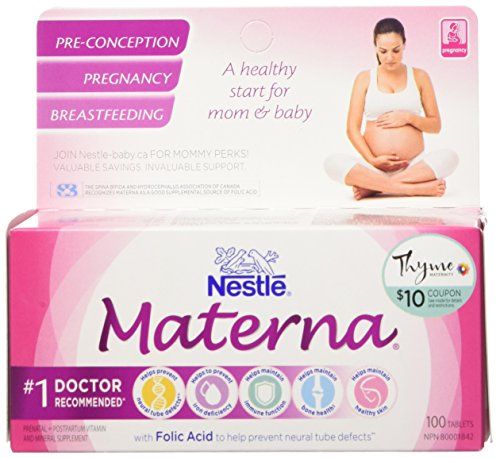
Ginger
In most cases, ginger root is used as a spice. However, it can also be used as a remedy for nausea, which can be caused by intoxication, chemotherapy, or motion sickness.
So, during research, scientists were able to find out that the root of this plant can be used as a remedy for nausea and vomiting during pregnancy, which in 80 percent of cases are observed in the first trimester.
Despite this effect, more research is needed to determine the safe dosage of ginger and prevent negative effects on the mother and fetus.
Fish oil
The main components of fish oil recommended during pregnancy are DHA and EPA, which are necessary for the normal development of the brain of the unborn child. Moreover, the use of these trace elements can prevent the development of depression in pregnant women.
Although pregnant women have seen improvements in cognitive function and brain development in the fetus during fish oil intake, scientists have not been able to confirm that this effect is not temporary, but permanent.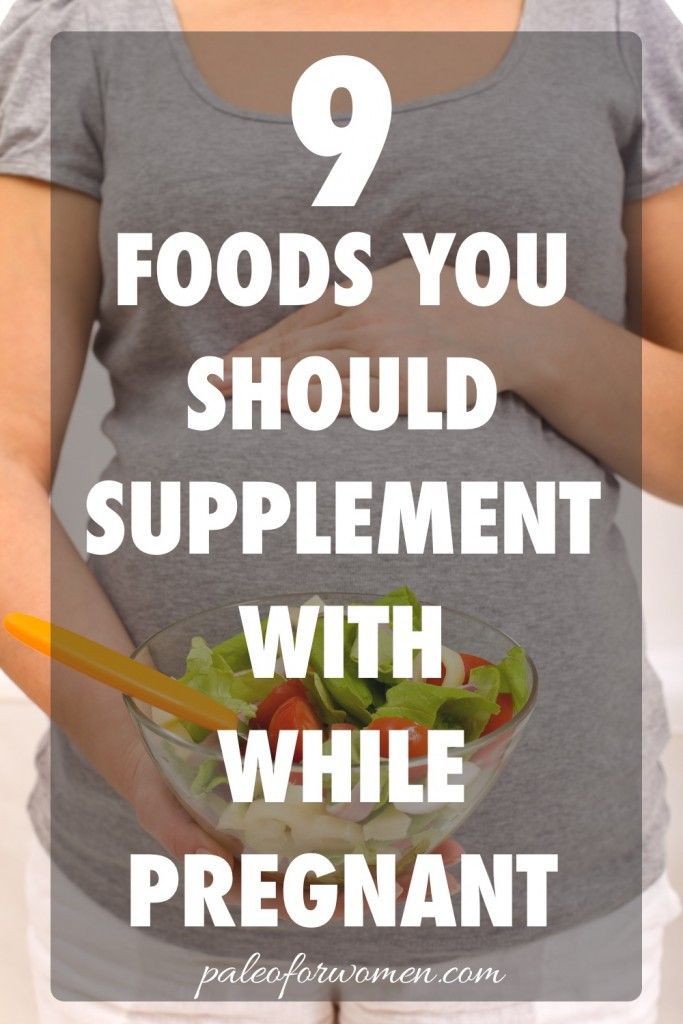
For example, one study of 2,400 women found no difference in brain development between children whose mothers took 800 mg of DHA per day and children whose mothers did not take these supplements. This study also demonstrated that this micronutrient has no effect on the development of depression in pregnant women.
However, despite this, the use of fish oil can reduce the risk of preterm birth and significantly improve the development of the eye in the fetus.
Scientists have also noted that DHA is safe for pregnant women. It can be obtained not only through supplements, but also through the consumption of fatty fish such as salmon, pollock and sardines.
Probiotics
Most pregnant women are actively interested in probiotics - microorganisms that improve the digestive process. In this regard, several studies have been conducted demonstrating that the consumption of these substances is absolutely safe for the body.
For example, in one study, scientists found that the consumption of probiotics can significantly reduce the risk of developing diabetes, depression, and skin diseases in the fetus.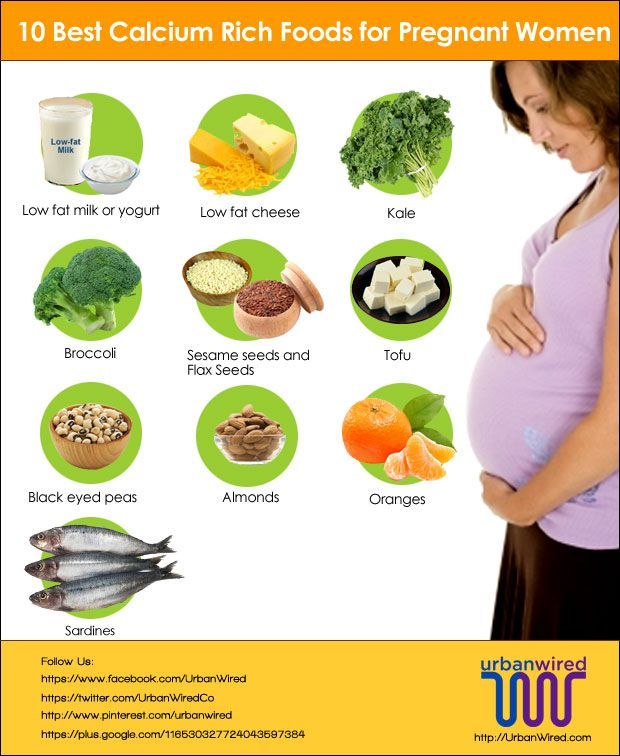
Researchers are currently continuing to study the effect of probiotics on the body of pregnant women, which will soon allow them to identify a number of other positive aspects of taking these substances.
Which dietary supplements are not recommended for pregnant women
Although most nutritional supplements are recommended for pregnant women, some of them can adversely affect the health of the mother and fetus. Consider the main substances and products that are not recommended for pregnant women.
Vitamin A
Although vitamin A is important for the development of fetal vision during embroidery, taking it as a dietary supplement can be extremely harmful. An excessive amount of this trace element can lead to disruption of the liver and damage to this organ in the mother, which in turn can cause the development of birth defects in the baby.
Therefore, during pregnancy, it is recommended to consume foods rich in this vitamin rather than supplements.
Vitamin E
This fat-soluble vitamin helps to strengthen the immune system and improve the transmission of heredity to the child. Despite the fact that this substance is important for the body, its use is highly discouraged during gestation. This is due to the fact that an excessive amount of the nutrient component can increase pain in the abdomen and lead to rupture of the amniotic sac.
Black cohosh
Black cohosh is a herb that belongs to the buttercup family and is used to relieve menstrual pain. Due to the fact that this herb promotes uterine contractions, which can lead to premature birth, its use during pregnancy is highly undesirable.
In addition, scientists have found that this plant can cause liver dysfunction and destruction of this organ.
Hydrastis
Hydrastis, more commonly known as Goldenseal, is a plant whose extract is used to treat diarrhea and respiratory infections. It contains a substance called berberine, which increases the symptoms of jaundice in children.
The use of this herb or supplements containing it can cause damage to brain cells and even death. In this regard, its use is not recommended for pregnant women.
Dong Quai
Dong Quai root has been used in Chinese traditional medicine for 1,000 years to relieve menstrual discomfort and normalize blood pressure. However, despite its benefits, the effectiveness of this plant is highly questionable.
Due to the fact that the root of this plant stimulates uterine contractions, which can lead to miscarriage or premature birth, its use is not recommended during gestation.
Yohimbe
Yohimbe is a food supplement made from the bark of specialized trees native to West Africa. This supplement is used to treat a range of conditions ranging from prostate problems to obesity.
Yohimbe is highly discouraged during pregnancy as it can increase blood pressure, cause heart failure and muscle spasms.
Other herbs not recommended for pregnant women
Other herbs not recommended during pregnancy include:
- Saw palmetto;
- clover;
- yarrow;
- pennyroyal;
- wormwood;
- ephedra;
- angelica;
- blue cohosh.
Conclusion
Pregnancy is the time of gestation and growth of the fetus in the womb, during which proper nutrition is the main factor on which the health of the child depends.
Although some nutritional supplements can be very beneficial for pregnant women, there are many that can still harm the health of both the mother and the unborn child. It is worth paying attention to the fact that nutritional supplements are only an addition to the main diet, and are not a replacement for it.
Eating wholesome foods, minimizing stress, exercising in the morning, and getting good sleep are the keys to having a healthy baby. While supplements may be necessary in some cases, a doctor should be consulted before taking them.
Research links
1. Protein and Amino Acid Requirements during Pregnancy
pregnancy worldwide: health effects and prevention
https://www.ncbi.nlm.nih.gov/pmc/articles/PMC4927329/
3. Periconceptional Folate Deficiency and Implications in Neural Tube Defects
https://www. ncbi.nlm.nih.gov/pmc/articles/PMC3415073/
Vitamins and pregnancy - articles from the specialists of the clinic "Mother and Child"
Kurbatskaya Olga Nikolaevna
Obstetrician-gynecologist
Lapino-1 Clinical Hospital "Mother and Child"
One of the most common questions that pregnant women ask their doctor is what vitamins should I take during pregnancy? Let's say right away whether expectant mothers need to drink pharmaceutical vitamins or not - there is no unequivocal answer to this question. Some doctors believe that the necessary nutrients should be obtained from natural products. Others are in favor of taking pharmaceutical multivitamins. It can only be said unequivocally that vitamins and microelements must necessarily enter the body of a pregnant woman. We will tell you which of them are most important for the expectant mother.
Folic acid
Other names for this vitamin are vitamin B 9 or B with . This vitamin is necessary for cell division and reproduction, so it is especially important in the first trimester of pregnancy, when all organs and systems of the child are being laid. Folic acid plays an important role in the synthesis of hemoglobin, and with its deficiency, anemia can develop. And folic acid also helps to reduce the likelihood of spinal defects in a child, takes care of the correct formation of his psyche and intellect. It is better to start taking folic acid three months before the planned conception, since a small supply of this vitamin will only be useful for both the expectant mother and the baby. If the pregnancy has come unplanned, then folic acid must be taken as soon as the woman finds out about her situation. On average, the dosage of this vitamin is from 0.4 to 0.8 mg per day.
Calcium
An expectant mother needs about 1200–1400 mg of calcium daily, while an ordinary woman needs 800–1000 mg of this trace element. Why? During pregnancy, the amount of calcium in the body of the expectant mother is significantly reduced, since it is also spent on the growth and development of the child. Especially a lot of calcium is needed in the third trimester, when the baby's skeleton is calcified. But calcium is needed not only for the growth of bones and teeth of a child - with its help, his nervous system, his heart, muscles, skin tissues, eyes, ears, hair and nails are formed. A pregnant woman needs calcium for the full functioning of the kidneys, the prevention of muscle pain, constipation, osteoporosis, caries and toxicosis. In addition, this trace element protects the expectant mother from stress and nervous overload.
Vitamin E
This vitamin is involved in the process of tissue respiration, it helps oxygen to penetrate into every cell of the body. At the same time, vitamin E is an excellent antioxidant: it protects cells from the formation of free radicals that can provoke various diseases. This protective function is especially important at the stage of embryo formation. In addition, vitamin E helps to normalize the hormonal balance of the body. In the early stages, it participates in the formation of the placenta, and also protects against abortion. The dose of vitamin E during pregnancy is 15 mg.
Vitamin E is found in vegetable oils, not less than this vitamin in lettuce, tomatoes, rose hips, parsley, spinach and peas. Some vitamin E is found in meat, eggs and milk.
Magnesium
Magnesium is involved in all metabolic processes, helps to cope with stress, normalizes the functioning of the cardiovascular system and blood pressure, and keeps blood vessels in good shape. Due to a lack of magnesium in the body, cramps in the muscles (usually in the calves) may appear. And since the uterus is also a muscular organ, with a lack of magnesium during pregnancy during gestation, the excitability of the myometrium increases, which leads to active uterine contractions. Therefore, with hypertension and the threat of abortion, magnesium is often prescribed.
Magnesium is rich in whole grains and whole grain breads, figs, almonds, seeds, dark green vegetables, and bananas.
iodine
Iodine is usually prescribed for pregnant women in the first trimester. Up to 16 weeks of pregnancy, the development of the child and the laying of all its organs and systems are "under the protection" of the mother's thyroid gland. And if a woman has little iodine, then this means that some system or organ of the baby may suffer. And even when the child’s own thyroid gland is formed and starts working, she can still take iodine only from the mother’s body. Its daily dose is 250 mg per day.
Iodine is easiest to get from seafood and sea or iodized salt. A lot of iodine is found in sea fish, seaweed, squid, persimmon, feijoa, dates, dried figs, dairy products and meat. However, iodine is destroyed by temperature effects, which means that after heat treatment, the amount of iodine in the products decreases sharply.
Iron
Iron is necessary primarily for the prevention of anemia. After all, it is part of hemoglobin, which carries oxygen throughout the body of the mother and child. In addition, iron is involved in protein synthesis, which is involved in the formation of muscle tissue. And iron deficiency can lead to increased uterine tone. The average daily dosage of iron is 30–60 mg. In some cases, if the woman's iron supply was initially reduced, the dosage may be higher.
Iron is found in meat, especially a lot of it in veal, turkey, hare, pork and beef. There is iron in plant foods, but from there it is absorbed much worse. Iron is best absorbed when taken together with vitamin C.
If a pregnant woman eats properly and varied, eats a lot of fruits and vegetables, then she may not need an additional complex of vitamins for pregnant women. It may be necessary to drink some vitamins separately, but this should be determined by the doctor. If, before pregnancy, a woman had signs of vitamin deficiency, she eats incorrectly or poorly, then multivitamins cannot be dispensed with.
Inset
Vitamin B 9 (folic acid) is found in animal liver, spinach, asparagus, lentils, Brussels sprouts, beans and wholemeal flour. However, it is absorbed very poorly from food, no more than 50%. That is why it is prescribed to almost all pregnant women.
At one time, our body will not be able to absorb more than 500 mg of calcium. Therefore, you should not try to get the entire daily norm of this trace element in one meal. Try to eat foods containing calcium in small portions several times a day.
To increase the concentration of magnesium in tissues, vitamin B 6 (pyridoxine) is needed, which facilitates its absorption and acts as a conductor of magnesium into the cell. Therefore, magnesium and vitamin B 6 are often prescribed together.
Make an appointment
to the doctor - Kurbatskaya Olga Nikolaevna
Lapino-1 Clinical Hospital "Mother and Child"
PregnancyHome birthBirth
By clicking on the send button, I consent to the processing of personal data
Attention! Prices for services in different clinics may vary. To clarify the current cost, select the clinic
The administration of the clinic takes all measures to update the prices for programs in a timely manner, however, in order to avoid possible misunderstandings, we recommend that you check the cost of services by phone / with the managers of the clinic
Clinical Hospital MD GROUPClinical Hospital Lapino-1 "Mother and Child"Clinic KG "Lapino" in Odintsovo (branch)Clinic "Mother and Child" Khodynskoye PoleClinic "Mother and Child" KuntsevoClinic "Mother and Child" Savelovskaya Clinic "Mother and Child" » South-WestClinic "Mother and Child" NovogireevoClinic "Mother and Child" Lefortovo
All directionsSpecialist consultations (adults)Specialist consultations (children)Laboratory of molecular geneticsGeneral clinical studiesTreatment roomTelemedicine for adultsTherapeutic studiesUltrasound examinations for adults
01.






